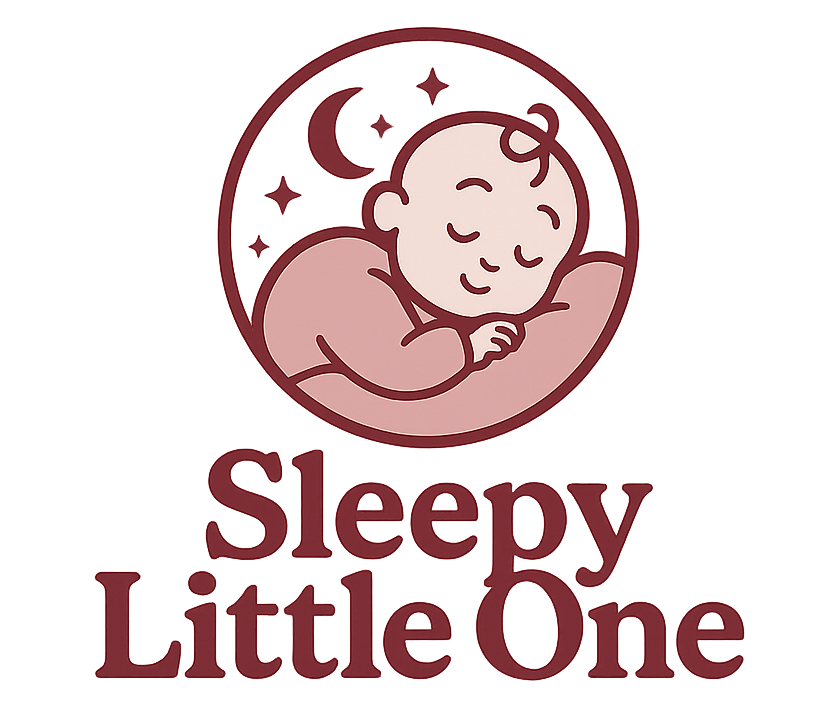5 Baby Sleep Myths
May 13, 2025
When you're a tired parent desperately searching for answers, sleep advice comes at you from every direction—family members, parenting blogs, Facebook groups, even strangers at the grocery store. But how do you know what's actually helpful?
Let’s gently bust five of the most common sleep myths that may be keeping your baby awake—and show you what to do instead.
1. “Never wake a sleeping baby.”
This phrase has been passed down for generations, and while it sounds comforting, it’s not always the best advice. There are times when waking your baby is the kindest choice for their overall sleep.
If your baby naps too long or too late in the day, it can disrupt bedtime and overnight sleep. Waking your baby at the right time helps build healthy sleep pressure and keeps their internal rhythm on track.
✅ Instead, try this:
Follow age-appropriate wake windows and cap naps that push too close to bedtime. A well-rested baby sleeps better, not longer.
2. “Crying it out is the only way to sleep train.”
Many parents believe that in order to teach their baby to sleep, they must let them cry endlessly without support. This is simply not true.
There are gentle, attachment-friendly methods—like those inside the Sleepy Little One course—that teach your baby to sleep independently without ever leaving them to cry alone.
✅ Instead, try this:
Use a responsive, step-by-step approach that combines routine, timing, and brief check-ins. You don’t need to choose between sleep and connection—you can have both.
3. “Feeding to sleep will always be a problem.”
Feeding before sleep isn’t wrong. It’s only an issue when it becomes the only way your baby knows how to fall asleep. What matters is separating feeding from sleep just enough to help your baby practice the skill of falling asleep on their own.
✅ Instead, try this:
Place feeding earlier in the bedtime routine, so baby is still awake when placed in the crib. Even small changes in routine can lead to big wins in sleep!
4. “Sleep training is only for older babies.”
Many parents delay sleep help because they think it’s “too early.” While formal sleep training typically starts around 4–5 months, you can build healthy sleep habits right from the start.
Creating a consistent environment, responding to cues, and guiding your baby gently toward self-soothing can begin as early as the newborn stage.
✅ Instead, try this:
Start with small steps—like practicing one nap per day in the crib or creating a soothing bedtime routine.
5. “If sleep training isn’t working after a few nights, it’s failing.”
Progress isn’t always linear. Some babies adjust quickly; others take longer. What matters most is consistency, calm confidence, and trusting the process.
A few rough nights don’t mean you’ve done something wrong—they often mean your baby is learning something new.
✅ Instead, try this:
Stick with your plan for at least 5–7 days before making big changes. Most families see improvement within a week when they stay consistent.
Final Thoughts
Sleep myths can cause unnecessary stress and confusion. The good news? You don’t need to follow outdated advice or “just survive” sleepless nights.
By replacing myths with gentle, evidence-informed strategies, you’re giving your baby (and yourself) the gift of rest—and that’s something every family deserves.
✨ Want to take the next step?
Explore the Sleepy Little One Bundle—a compassionate, proven sleep system designed to help your baby sleep peacefully and independently, with your support every step of the way.
Ready to take the next step toward peaceful nights?
Explore our proven sleep tools, trusted by hundreds of families just like yours.
Stay connected
....................
“Tired of sleepless nights? Get gentle, practical baby sleep tips + encouragement straight to your inbox—because better rest is just one small step away.”
We hate SPAM. We will never sell your information, for any reason.

